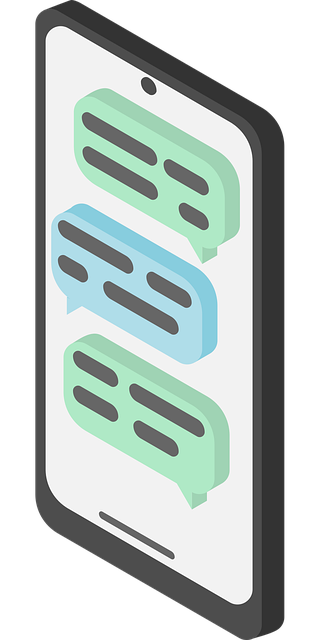Greenville, SC young adults face a surge in unwanted phone calls from telemarketers. Online communities share solutions like "Do Not Call" services and legal help from specialized Do not call lawyers SC or Do not call attorneys SC. State laws, such as the TCPA, protect residents; reporting nuisance calls to the FTC aids in enforcement. Strategies include registration on the National Do Not Call Registry, using call-blocking apps, and seeking legal counsel from firms specializing in do not call law firms South Carolina.
In Greenville, South Carolina, the prevalence of unwanted phone calls targeting young adults has become a growing concern. With the widespread use of social media, reporting these intrusive calls has evolved. This article explores how social media platforms have facilitated a new method for documenting and addressing do-not-call violations. We delve into the legal framework available to residents, including the role of do not call lawyers and do not call law firms in SC, and offer practical strategies to prevent and respond to unwanted phone marketing, empowering young adults to reclaim their privacy.
Prevalence of Unwanted Phone Calls Among Young Adults in Greenville, SC
In Greenville, South Carolina, unwanted phone calls, often from telemarketers or scammers, are a prevalent issue among young adults. With easy access to smartphones and internet-based calling services, this problem has intensified in recent years. Many recipients find themselves deluged with incessant calls, especially from unknown numbers, promoting various products and services. This phenomenon is particularly concerning for the younger generation who may lack awareness or the resources to handle such intrusions effectively.
The prevalence of unwanted phone calls has prompted many young adults to seek solutions, often turning to online forums and social media for help. They share experiences, strategies, and advice on how to block these calls, with a common thread being the recommendation of using “Do Not Call” services or seeking legal assistance from a lawyer specializing in such matters within South Carolina. This trend highlights the need for increased awareness and accessible solutions to combat this nuisance, especially among the tech-savvy young population.
The Role of Social Media in Facilitating and Reporting Unwanted Calls
In today’s digital age, social media platforms have become a double-edged sword when it comes to unwanted phone calls. On one hand, they provide a convenient channel for individuals to connect and communicate, but on the other, they can inadvertently facilitate and spread nuisance calls. Many young adults in Greenville, South Carolina, are now turning to social media as a means of reporting these unwanted contacts, especially those from law firms or attorneys advertising their services. By sharing experiences and exposing such practices online, peers can collectively raise awareness about the prevalence of these calls and encourage others to take action against them.
Platforms like Twitter, Instagram, and Facebook allow users to easily document and share instances of nuisance calls, often including details such as phone numbers, call patterns, and even recordings. Hashtags like #DoNotCallSC or #StopUnwantedCalls can help centralize these discussions, enabling individuals to connect, offer support, and coordinate efforts to report the offenders. This digital reporting system not only empowers young adults but also provides a direct channel to seek assistance from relevant authorities or legal professionals. For instance, those experiencing repeated calls from law firms promoting their “Do Not Call” services can now quickly connect with like-minded individuals and consider hiring a local lawyer in South Carolina who specializes in such matters.
Legal Framework and Resources for Addressing Do Not Call Violations in South Carolina
In South Carolina, the Telephone Consumer Protection Act (TCPA) sets a legal framework to protect residents from unwanted phone calls, including automated or prerecorded messages, often associated with telemarketing. This federal law grants consumers the right to register their phone numbers on the National Do Not Call Registry, effectively blocking most marketing calls. Additionally, South Carolina has its own state laws that complement these federal regulations, further empowering individuals to take action against persistent or unauthorized phone calls.
If a young adult in Greenville experiences unwanted or harassing phone calls, they have legal options available. A Do not call lawyer SC or a specialized do not call attorney SC can guide individuals through the process of filing a complaint with the Federal Communications Commission (FCC) and seeking compensation for any resulting damages. Numerous law firms South Carolina offer expertise in handling do not call violations, ensuring that residents are aware of their rights and have access to justice when dealing with persistent telemarketers. These legal resources play a crucial role in maintaining peace of mind and privacy for Greenville’s young adults.
Effective Strategies for Preventing and Responding to Unwanted Phone Marketing
Unwanted phone marketing, often in the form of robocalls or solicitations from law firms, can be a significant nuisance and intrusion for young adults. Luckily, there are effective strategies to prevent and respond to such calls, empowering individuals to take control of their communication. One powerful tool is registering on the National Do Not Call Registry, which restricts telemarketing calls to registered numbers. In South Carolina, specifically, residents can also utilize state-specific services like the Do Not Call Lawyer SC or similar initiatives targeting attorney and law firm solicitations.
Additionally, many smartphone applications offer call blocking and filtering features that can automatically identify and block unwanted callers, including those from Do not call law firms in South Carolina. Educating young adults about these tools and encouraging them to install such apps is a proactive step. Moreover, reporting excessive or aggressive telemarketing calls to the Federal Trade Commission (FTC) is essential, as it helps track and penalize offenders. This can be done through the FTC’s Complaint Assistant, providing a simple and effective way to combat unwanted phone marketing efforts.






